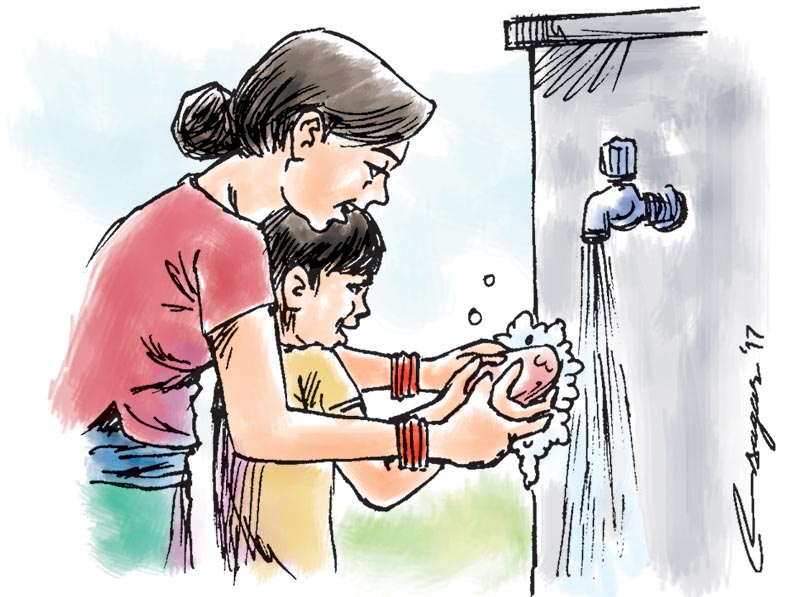WHO calls to promote good hand hygiene
Kathmandu, May 5
Promoting good hand hygiene is one of the most cost-effective ways to enhance the safety and quality of healthcare facilities for all, said the World Health Organisation.
“Good hand hygiene helps stop the spread of infection, control the risk of bacterial mutations and therefore antimicrobial resistance, and makes health care significantly more efficient,” read a press release issued by Dr Poonam Khetrapal Singh, WHO regional director for South-East Asia, which also includes Nepal.
In particular, good hand hygiene is needed to prevent sepsis, a potentially life-threatening condition that can result from the body's response to infection.
Globally, over 30 million patients are affected by sepsis every year, many of them in low- and middle-income countries. Should antimicrobial resistance advance, this number will increase. Enhanced hand hygiene in health care facilities is therefore a pressing need and is everyone's responsibility, from patients and health workers to administrators and policymakers, she suggested.
According to the release, health workers should fully embrace the WHO-recommended ‘five moments for hand hygiene'. This five step formula requires health workers to wash their hands using an alcohol-based product for 20 to 30 seconds, or soap and water for 40 to 60 seconds, before touching a patient, before aseptic procedures and after touching a patient and patient surroundings.
“Facility-based infection prevention and control leaders should seize every opportunity to champion the importance of good hand hygiene. That can include communicating the critical importance of implementing WHO guidelines on hand hygiene to policymakers, hospital chief executive officers, administrators and health workers,” it read.
Health facility leaders and senior management should make hand hygiene a key quality monitoring indicator. Ministries of health from across the region should implement the 2017 World Health Assembly resolution on sepsis, which makes improving the prevention, diagnosis and management of sepsis a critical imperative.






